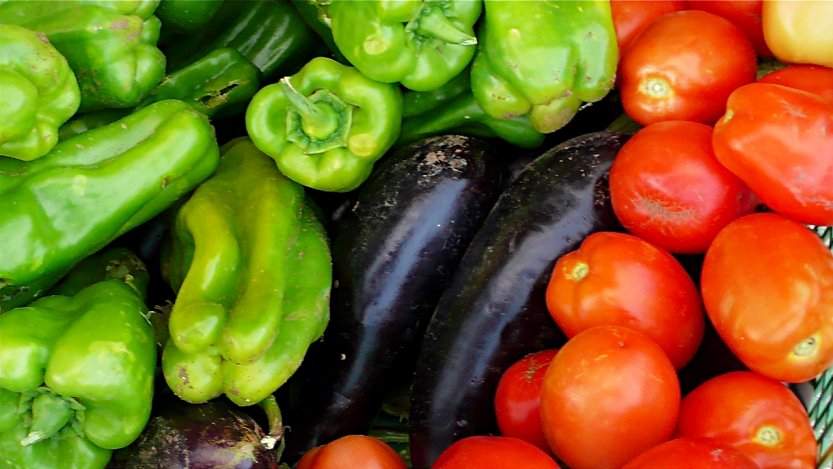It sounds hella sexy, but what are nightshades and who should avoid them?
Photo by Fatima Flores on Flickr.
What are nightshades?
Nightshades are plants belonging to the Solanaceae family. The family is huge, with species ranging from tobacco to petunias, to poisonous plants like belladonna (deadly nightshade). Edible nightshades include tomatoes, potatoes, eggplant, peppers (including spices, like paprika and cayenne, which are derived from them), goji berries, peppinos and pimentos.
I thought veggies were good! What makes nightshades bad?
Most nightshades produce a compound called solanine, which is a glycoalkaloid that acts as part of the plant’s natural defense system. Solanine poisoning can occur when high dosages — more than 2-6 mg per kg body weight — are ingested. Symptoms include nausea, vomiting, diarrhea, abdominal cramping, burning of the throat, irregular heartbeat, nightmares, headache and dizziness. In more severe cases, solanine poisoning can lead to hallucinations, fever, jaundice, paralysis and even death.
This all sounds very scary, but solanine poisoning is extremely rare. Although solanine does exist in fruits and tubers, most of it is concentrated in the plant’s leaves and stems, which are parts that we generally don’t eat. Cooking the vegetables also reduces their solanine content. A 70-kg (154 lb) person would have to eat at least 2.5 lb of potatoes, tomatoes or eggplants in one sitting to start displaying symptoms of solanine poisoning. Documented cases of solanine poisoning generally involve non-edible nightshades, or potatoes that have sprouted or are turning green (which, along with bitterness, is a sign of increased solanine production).
So, why are some of my friends avoiding nightshades altogether?
As with all foods, some people are more sensitive to solanine and/or other glycoalkaloids produced by nightshades. In general, people with existing autoimmune diseases, such as arthritis, Type 1 diabetes, celiac disease, lupus, multiple sclerosis, Crohn’s disease and colitis, are more likely to be sensitive to nightshades. These autoimmune diseases can cause damage to the lining of our intestines, causing a condition called leaky gut (or intestinal permeability, if you think words with more syllables sound more legitimate). In leaky gut, particles that would not normally pass through our intestinal walls into other parts of our body get to the outside of our gut. Our immune cells recognize these particles as foreign, and mount an immune response, causing inflammation. People who are sensitive to nightshades may find that including these foods in their diet can increase inflammatory symptoms like joint stiffness, muscle pain and skin reactions.
Will avoiding nightshades make me feel better?
If you do suspect that nightshades are causing you discomfort, or worsening your symptoms in existing arthritis or chronic disease, you may benefit from trying an elimination diet for two to four weeks to see if symptoms improve, or if symptoms worsen upon re-challenge. Some excellent resources on how to use elimination diets to figure out whether or not you have food sensitivities include Dealing with Food Allergies by Janice Joneja, PhD, RD, a Canadian dietitian who is a leader in food allergy research; and The Elimination Diet Workbook, a recently released book by Maggie Moon, MS, RD; or, meet with an allergist or dietitian who specializes in food allergies. Otherwise, nightshades have many benefits, even for those who have autoimmune disease. Tomatoes, bell peppers and potatoes are rich in vitamin C, which, like all antioxidants, can help prevent heart disease and cancer. Studies have shown that capsaicin, which give peppers their spiciness, exhibits anti-inflammatory properties.
TL;DR (the bottom line):
Most people don’t have to worry about edible nightshades, even though they are related to more toxic plants. (In fact, the primary toxins in deadly nightshade are tropanes, not solanines.) If you do suspect that you are sensitive to nightshades, or that they are making your pre-existing autoimmune disease worse, devise an elimination diet and re-challenge protocol (ideally with the help of a health professional) to figure out if nightshades are the culprit. If not, then continue eating delicious and nutritious tomatoes, eggplants, potatoes, peppers and other edible members of the nightshade family. Just avoid sprouted or green potatoes.













